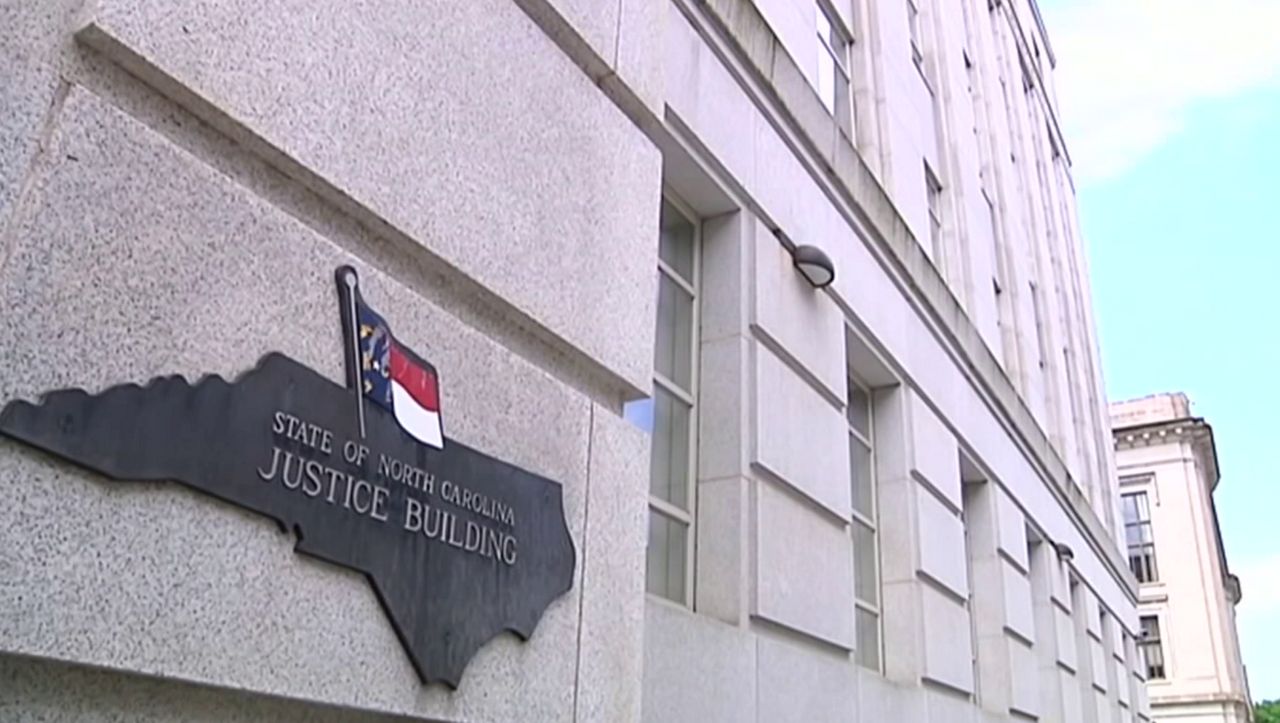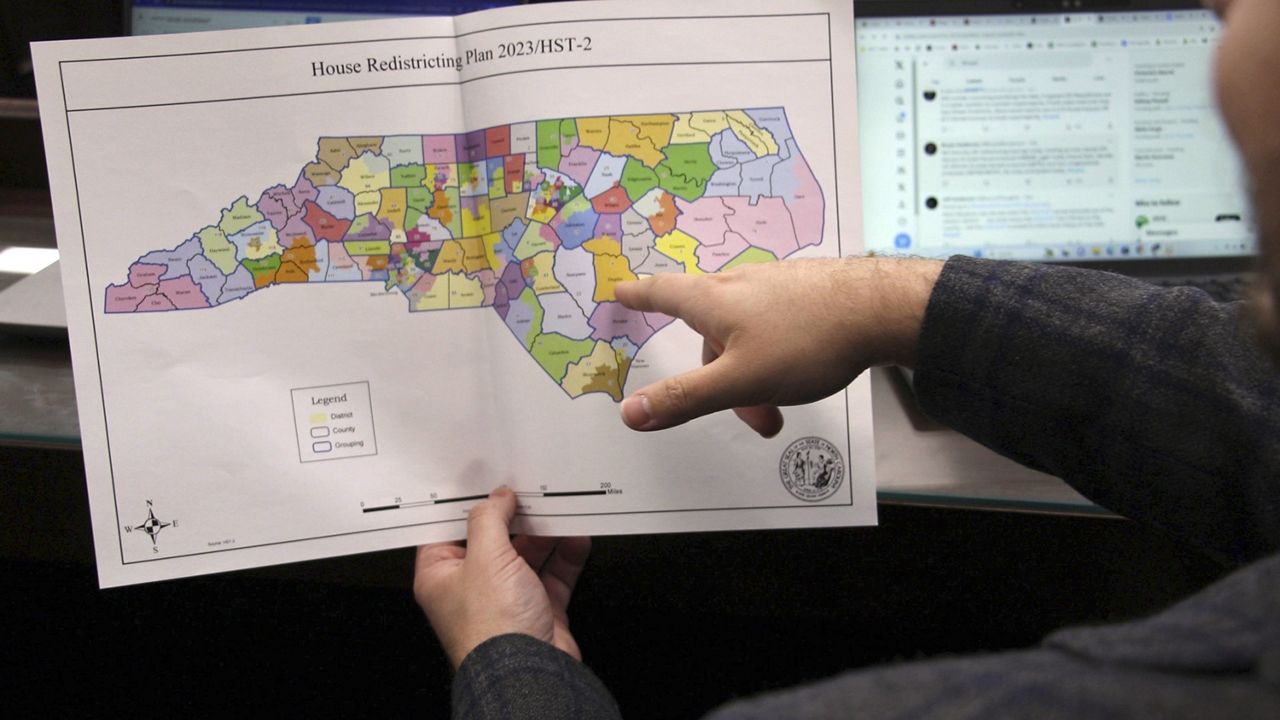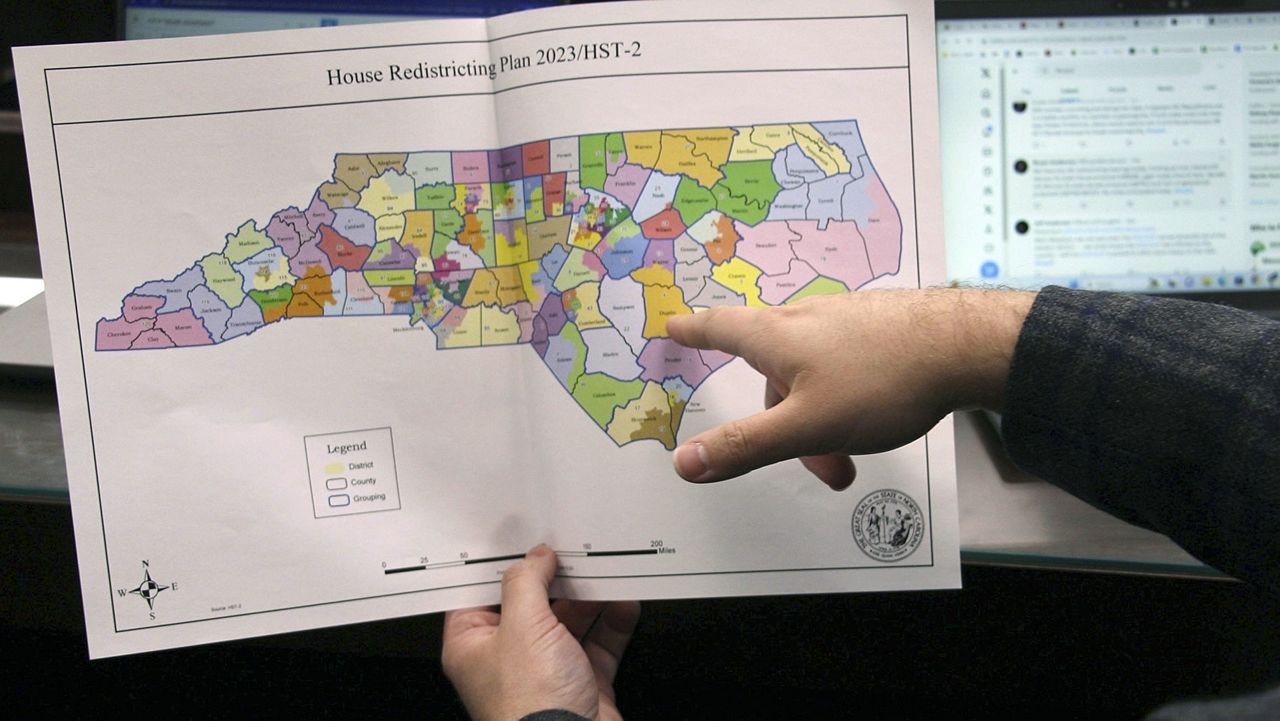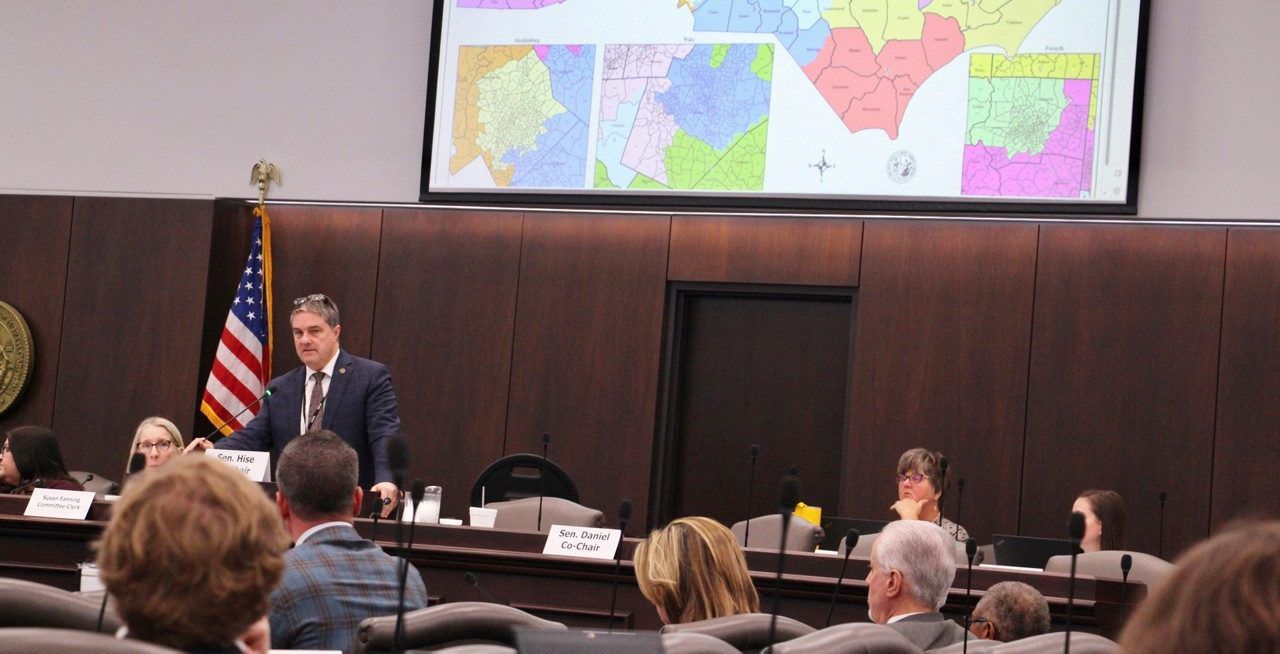RALEIGH, N.C. — The North Carolina Supreme Court tossed out redistricting maps late Friday, finding they are unconstitutionally gerrymandered.
The court said the Republican-controlled General Assembly needs to redraw the political maps for U.S. House and the North Carolina House and Senate by Feb. 18 or a three-judge panel in Wake County Court will select new maps.
The ruling came on party lines by the majority Democrat high court. It called the maps "unconstitutional beyond a reasonable doubt under the free elections clause, the equal protection clause, the free speech clause, and the freedom of assembly clause of the North Carolina constitution."
"The General Assembly violates the North Carolina Constitution when it deprives a voter of his or her right to substantially equal voting power on the basis of partisan affiliation," the order states.
A dissenting opinion, written by Republican Chief Justice Paul Newby, said the ruling "violates separation of powers by effectively placing responsibility for redistricting with the judicial branch, not the legislative branch as expressly provided in our constitution."
The defendants, GOP legislators, can appeal the ruling to the U.S. Supreme Court.
"To comply with this Order, redistricting plans shall adhere to traditional neutral districting criteria," the order says.
Nonpartisan groups that analyzed the maps found that they heavily favored Republicans. The maps as written would give Republicans at least 10 of the 14 congressional seats in North Carolina, according to the Princeton Gerrymandering Project.
Princeton researchers said the maps for U.S. House and both chambers of the General Assembly gave the GOP a significant advantage in elections, giving all three maps an "F" for fairness.
The maps as drawn last fall by the GOP-led General Assembly could have given a veto-proof majority to Republicans in the legislature.
"Today the Supreme Court ruled that our state constitution guarantees North Carolinians the right to elect their leaders in free and fair elections, something the General Assembly denied them when they drew their unconstitutional gerrymandered maps," said North Carolina League of Conservation Voters Executive Director Carrie Clark. The league was a plaintiff in one of the cases challenging the maps.
"This is the justice we sought when we filed this lawsuit. With new, constitutional maps, North Carolinians will have a fighting chance to elect a government that fulfills their desire for environmental justice and climate action," Clark said.
Republican Sen. Ralph Hise, who co-chairs the Senate Redistricting Committee, said in a statement, "Democratic judges, lawyers, and activists have worked in concert to transform the Supreme Court into a policymaking body to impose their political ideas. On this and other cases soon to come before them, the justices 'interpret the Constitution to mean what it would have said if they, instead of the Founding Fathers, had written it,' in the words of former justice Sam Ervin, Jr."
"This perverse precedent, once set, will be nearly impossible to unwind, as monied interests line up to buy their own justices to set law favorable to them. I’m certain Democrats will come to regret it," Hise said.
In a statement late Friday, Gov. Roy Cooper said, "A healthy democracy requires free elections and the NC Supreme Court is right to order a redraw of unconstitutionally gerrymandered districts. More work remains and any legislative redraw must reflect the full intent of this decision."
The state Supreme Court heard two cases challenging the maps earlier this week. A trial court in Wake County last month sided with the GOP and upheld the maps. The state Supreme Court overturned that decision.
The Republican-led legislature was in charge of redrawing the political maps for the General Assembly and North Carolina's 14 seats in the U.S. House of Representative last year. Redistricting comes once a decade after new population numbers are released by the U.S. Census Bureau.
In North Carolina, the maps are typically drawn behind closed doors and approved by the party in power. Last year, Republican leaders drew the new maps in open committee rooms and said they would not consider data from past elections or use race as a factor.
The lawsuits challenged the maps as both partisan and racial gerrymandering, meaning they gave Republicans an unfair advantage and disadvantaged Black voters.
The state Supreme Court ordered the lower court to approve new maps by Feb. 23. That's also the deadline for Republican leaders in the General Assembly to ask for an emergency stay as they appeal to the U.S. Supreme Court.
The court said the new maps must be approved by Feb. 23 to give the State Board of Elections enough time for candidate filing before the May 17 primary.
The General Assembly last month passed legislation to move the primary date to June, but the governor vetoed that bill.








